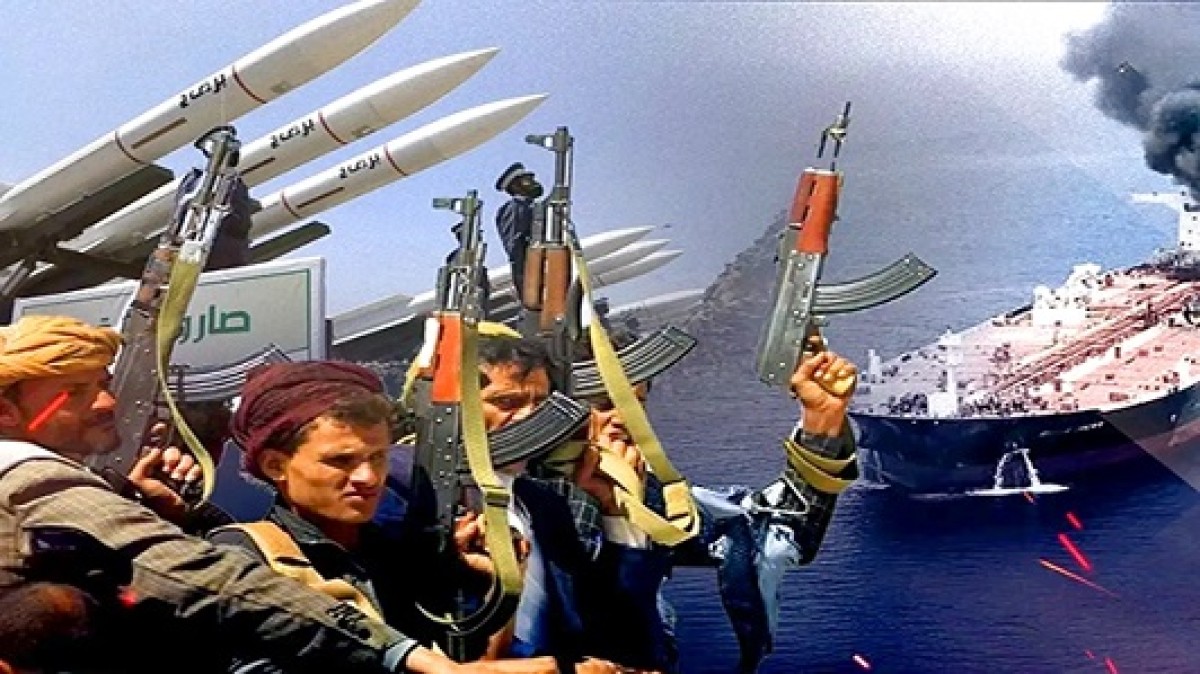American newspaper: Russia is allying with Iran to support the Houthis


An American newspaper said that the Houthi group will pose an early challenge to President Donald Trump, especially after reports emerged indicating Russia’s alliance with Iran in supporting the group that has been attacking international shipping ships and Western warships in the Red Sea for about a year.
The New York Sun reported in a report that Russia is joining Iran in supporting the Houthis, who are emerging as a major player in the anti-American coalition in the Middle East.
She added, "With Iran's most powerful proxy army, Hezbollah, hindered, the Houthis in Yemen - with the help of Tehran and now also Moscow - are emerging as a growing threat to America's interests. The group is certain to pose an early challenge to President-elect Trump."
She continued, "The Houthis may be just a cog in a growing anti-American coalition, but with Russia recruiting Yemeni mercenaries to fight in Ukraine, the Yemeni group is set to receive new, advanced weapons capable of wreaking havoc on the economies of Europe and America."
The American newspaper added, “With the support of Iran and Russia, paralyzing trade in the Red Sea, a major shipping route, could become a powerful weapon for a growing coalition determined to weaken and replace America’s global leadership.”
She stressed that intensifying relations between parts of this coalition may require taking decisive measures elsewhere, in order to deter other parts of the axis.
The newspaper quoted Inbal Nissim Lofton, a Yemen observer at the Open University in Israel, as saying that Russia’s assistance to the Houthis “is mostly intelligence, but I assume it includes talks about weapons as well.”
She adds that since Iran will now invest in rebuilding Hezbollah, it may want to participate in the Russian-Houthi deal.
Mike Waltz, Trump's nominee for national security adviser, told CNBC this week that the Middle East is "a key element to resolving the conflict between Russia and Ukraine."
Walz added that Trump's renewal of "maximum pressure" policy on Iran "will not only help stabilize the Middle East, but will also help stabilize the Russia-Ukraine theater, as Iran provides ballistic missiles and thousands and thousands of drones that go into that theater."
According to the newspaper, when Hezbollah agreed to a ceasefire this week, it abandoned its previous demand to stop fighting only after Hamas won. But this is not the case for the Houthis.
In the past decade, Iran has transformed a scattered Yemeni terrorist group into a well-armed and trained army, fighting Saudi Arabia on behalf of Tehran. Now, as Russia recruits Yemeni mercenaries to fight in Ukraine, Moscow also plans to upgrade the Houthis' weapons systems, Including advanced anti-ship missiles.
She added, “So far, America and its allies have been ineffective in confronting the Houthi attack on global freedom of navigation. Prime Minister Netanyahu said on Tuesday that Israel had “aggressively attacked the port of Hodeidah,” while the U.S.-led coalition “did not even do so.” Today.
The newspaper also quoted the policy director of the United Against Nuclear Iran organization, Jason Brodsky, as saying, “The Houthis will become more important within the Iranian resistance axis after Hezbollah’s losses. They are a worthy target for America, and they are also an easier target than Russia and Ukraine.” For example".
Washington also needs to “start targeting the archers in Iran, not just the arrows in Yemen,” Brodsky says, adding that taming the Houthis could serve as a powerful global signal: “If we are hesitant to confront Iran and the Houthis, what does that say about Our readiness to defend our interests with respect to Russia, China and other theaters?